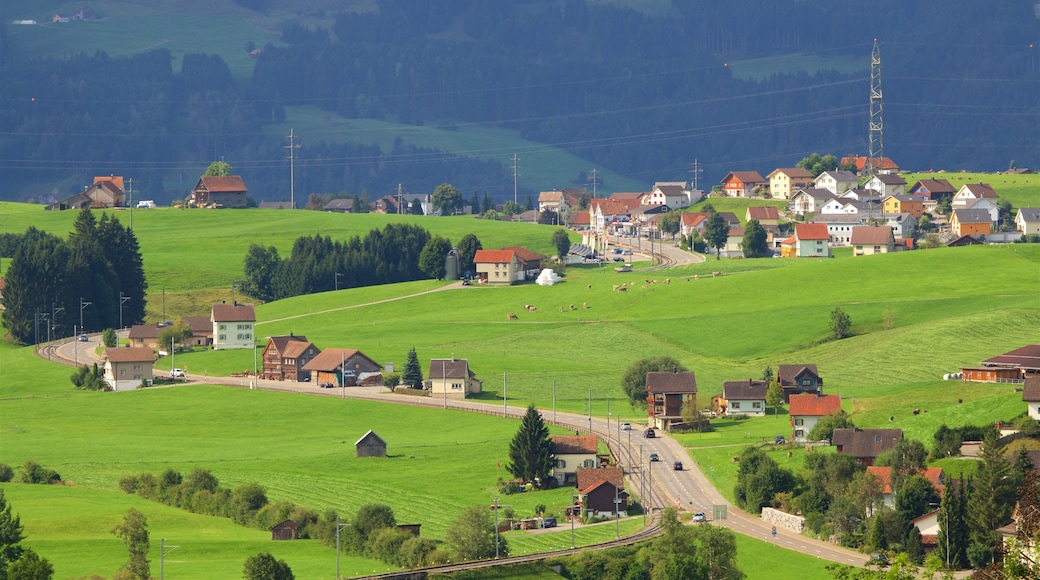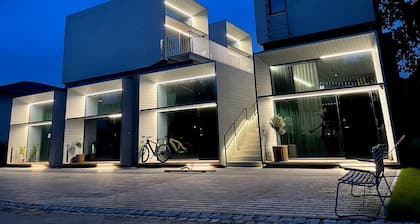Gais is a laid-back village nestled within the Alpine foothills of the Appenzell Outer Rhodes canton. Escape the crowds and enjoy the tranquility of gently rolling hills, sweeping mountain valleys and verdant woodland. Hike to hilltop lookouts, ride cable cars to imposing massifs and ski at welcoming resorts. Gais is an agricultural center that became known in the mid 1700s for its medicinal whey cures.
Admire baroque-inspired buildings, gable-roofed and half-timbered houses lining quiet streets. The village won the prestigious Wakker Prize in 1977 for its architectural preservation. Highlights include an 18th-century church and the large Hotel zur Krone. The Stoss Monument memorializes a 1405 battle when local residents threw stones and branches at invading Austrians. Browse a collection of works by Johann Ulrich Fitzi at the Village Square Museum.
Follow hiking trails departing from the village and travel deep into pristine Alpine countryside. Breathe in fresh air as you cross sprawling meadows around the 4,104-foot (1,251-meter) tall Gäbris peak. Marvel at sweeping views over the Appenzell Alps, Lake Constance and Austria’s Vorarlberg mountains. Go cross-country skiing and snowshoeing at Starkenmühle and tobogganing at Altstätten.
South of Gais the jagged peaks of the Alpstein region reach toward blue skies. Find excellent hiking trails at Ebenalp, Kronberg and Hoher Kasten. Take the scenic cable car to 8,209-foot (2,502-meter) tall Säntis, the tallest Alpstein massif. Ski and snowboard at Ebenalp-Schwende Ski Area and Kronberg Ski Area.
Be sure to visit the nearby villages. Appenzell is famous for its fresco-decorated buildings such as Hampi Fässler House. Learn about beer making on a tour of the Appenzeller Brewery. Schwende and Trogen afford superb panoramas of forest-covered hills.
Reach Gais easily via train services from St. Gallen and Zurich, among other major Swiss cities. You can also get here by train from Bregenz, Austria and Konstanz, Germany. Relax after a day of outdoor activities in the comfort of a traditional alpine lodge. Gais is German-speaking, although as the town is a tourist destination English is quite common.








